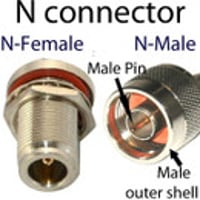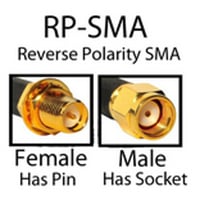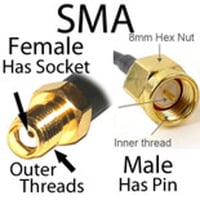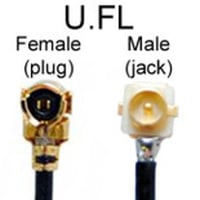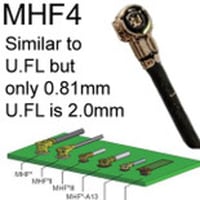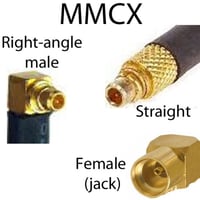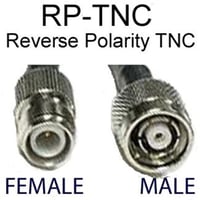N-female to U.FL Cable: 3-in 4-in 6-in 8-in 10-in 12-in 14-in 20-inch
$2.99
- SKU:
- Nf3iUFL113
- Availability:
- In stock
- Weight:
- 0.04 LBS
Brand:
Data Alliance
U.FL to N-female to Cables: 3 inches to 20 inches
Antenna Cable / Adapter: U.FL To N-female
- One end of this cable has a U.FL-female right-angle connector, and the other end has an N-female connector
- Other U.FL to N cables options
- The length refers to the length of the cable between the connectors (not including the connectors).
- Data Alliance's high-quality soldered terminations of U.FL and Type-N connectors with soldering provide a low-loss connection with discontinuities kept to a minimum.
Coaxial Cable Options for our U.FL to N-female cables:
- (Impedance: 50 Ohms): This is a very thin and flexible cable, with a black jacket. When connecting U.FL connector to a jack on a miniPCI card or board, often the tight space requires the use of 1.13mm cable, because it is very thin and flexible (diameter is 1.13mm). This very thin cable is typically needed in tight spaces inside of enclosures, so that the U.FL connector will snap down on the jack without popping off.
- RG174 coax is thicker and has lower signal loss (attenuation) than 1.13mm while also being flexible/easily bendable. RG174 is better quality than 1.13mm and has a black jacket. The higher quality of this cable translates into lower loss/better performance. This cable is rated for outdoor use and is also suitable for indoor use. Note that LMR-100 coax is too thick in diameter to use with U.FL connectors.
- 1.32mm coax is double-shielded while also very thin (1.32mm diameter).
- 1.37mm coax is another low-loss option.
- Special Orders: Please see this note about options for thickness of the coax, and note that we can make special orders with 1.13mm, RG174, 1.32mm and 1.37mm coax, if you want a lower-loss, thicker cable for the shorter versions of this cable. Contact us to make a special order.
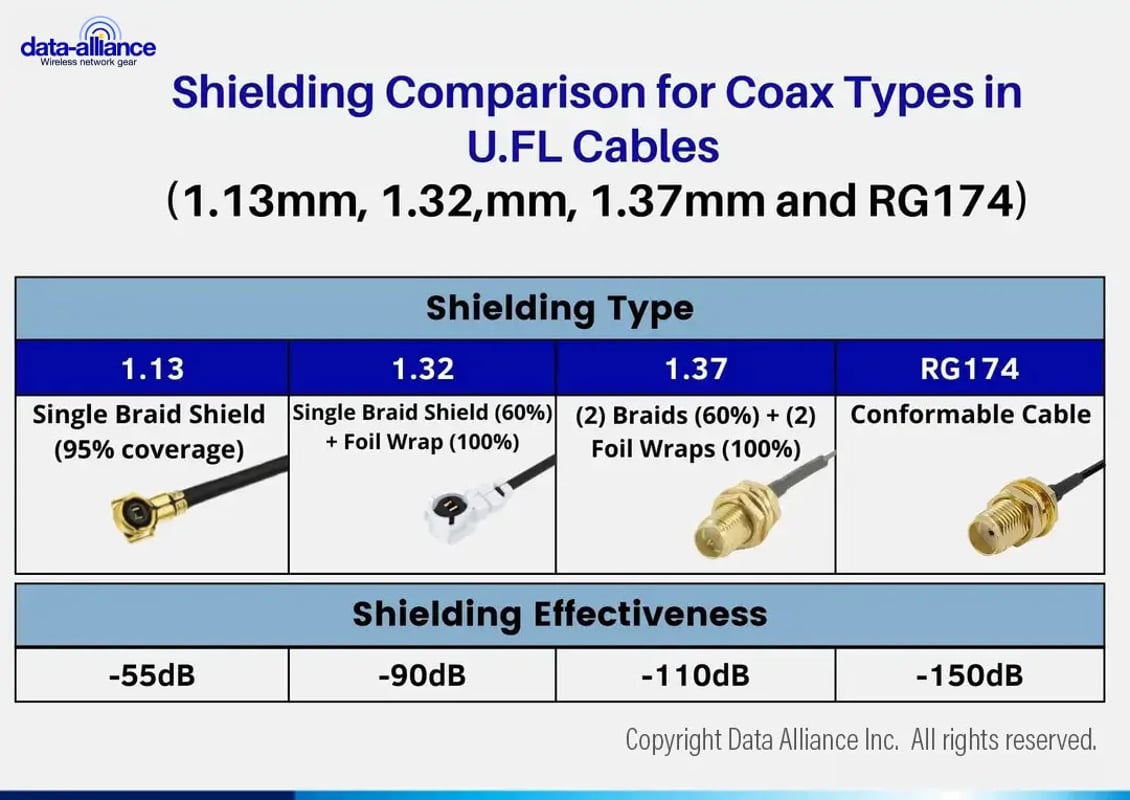
N-female Connector Characteristics
- The N-female includes a bulkhead nut and washer. and has a rubber O-ring, which provides a water-tight seal when installing in a network enclosure port.
- N-type connectors' body is nickel-plated brass, which is the best plating alloy for corrosion protection in outdoor environments.
- Gender Determination: Gender of N-female is counter-intuitive: Gender refers to the socket inside (as opposed to pin) and not to the threaded exterior of the connector body.
- N-Female diameter is 0.620-inch (1.57 cm)
- N is the largest of RF connector types, and very common to see on large antennas (most large antennas have an N-female connector).
- Nickel-plated brass body for enhanced corrosion resistance: Nickel plating is the most weather-resistant, corrosion-resistant metal plating.
U.FL Connectors Characteristics
- U.FL female has a socket. U.FL female right-angle type is the most common U.FL connector type found on U.FL cables: 95% of U.FL cables have a U.FL female right-angle connector.
- U.FL male has a pin and is the connector: Male U.FL is the gender that is the "jack" that is embedded directly on to a circuit board on devices such as BlueTooth boards, and ZigBee radios such as XBee, Printed Circuit Boards (PCBs) and internal mini-PCI wireless cards (even though the gender is male, it is the jack U.FL connector. Hence the male connectors / jacks are very rigid.
- The small size of U.FL connectors has made them an excellent fit in Machine-To-Machine (M2M) and IOT (Internet of Things) wireless applications, since they take up very little space in the cramped cases of small devices, such as Bluetooth beacons.
- Gender Determination: Micro-connectors such as U.FL have gender that is counter to typical RF terminology for gender, in that "jack" is more typically synonymous with "female:" A U.FL jack on a board (PCB) is the male U.FL, and the connector that mates with the jack is the female.
- Connecting and disconnecting U.FL connectors from the jack can be difficult to do properly without damaging the U.FL connector or jack. We offer a U.FL insertion tool to enable you to connect/insert and remove/disconnect easily, without causing any damage to the cable, connector or jack.
- U.FL connector is also known as Ultra Miniature Coax Connectors (UMCC), and enables attaching an external antenna to a U.FL jack/connector on Printed Circuit Boards (PCBs): U.FL female mates with a female HiRose/U.FL jack, also known as U.FL-LP-66 jack/connector.
U.FL Connectors' Material composition
- Male has a silver-plated phosphor bronze made the shell, and a gold-plated brass made contact.
- Female: The shell and contact of Female U.FL connectors are made of phosphor bronze but are silver, and gold-plated respectively. Female U.FL connectors are the ones used in the termination of antenna cable.
- U.FL connectors are precision machined. The gold-plating enables low signal loss.
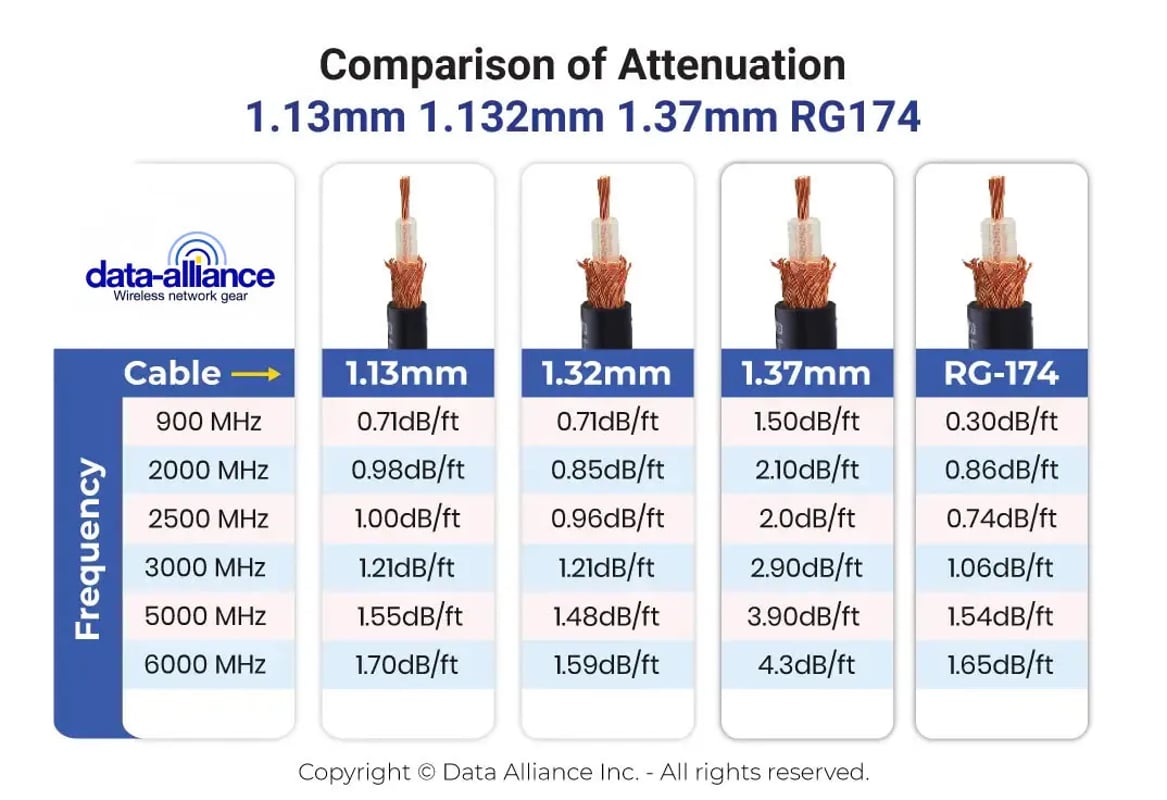
Compatibility with wireless standards & applications
- All WiFi standards: 2.4GHz and 5GHz applications: Wi-Fi 6, WiFi 6E, 802.11AX, 802.11AC, 802.11N, 802.11G, 802.11B, 802.11A
- Cellular Wireless LTE / 4G, GSM / 3G WiMax, 5G: Data and voice applications
- IoT wireless, automation & Machine to Machine (M2M): Bluetooth, ZigBee, RFID, LoRa, LTE-m, NB-IoT.
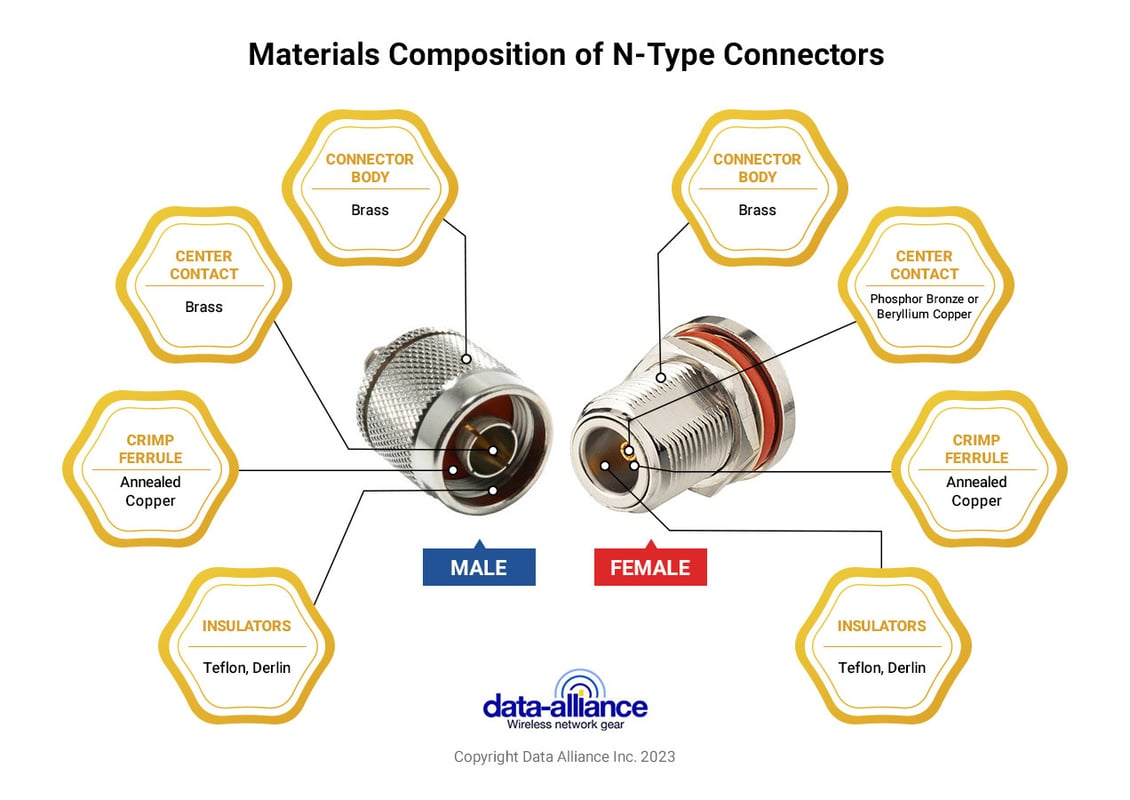
This antenna cable's range of frequency band compatibility (from 0 to 18GHz) and 50 Ohms impedance matching, makes it suitable and compliant with the above applications.
RoHS 3 and REACH compliant: All of our antenna cables and RF adapters are compliant with RoHS 3 and REACH restrictions for content of lead and other heavy metals and toxins.
Related Cables and Adapters:
RELATED PRODUCTS & INFO:

